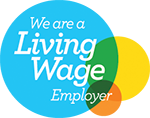Posted by Sharon Elliott on 21 March 2016
 Tony Lennon, research officer. Pic: Mark Dimmock
Tony Lennon, research officer. Pic: Mark Dimmock
Following George Osborne's budget on 16 March 2016, Tony Lennon, BECTU's research officer, highlights upcoming changes to tax and related areas of particular interest to BECTU members.
Key issues
BBC Over-75 Licence costs – Buried in the Budget paperwork is an estimate by the Office for Budget Responsibility that by 2020 the money needed to fund free over-75 Licences will be £725 million, nearly 20% of the BBC's current income.
Business Rates – A new relief for premises with rateable values below £15,000 begins in April 2017. Under £12,000 the relief is 100% (i.e. no business rates), and between £12,000 and £15,000 the relief tapers from 100% to zero. Many BECTU members renting premises are likely to be below the threshold for relief and will benefit.
Class 2 National Insurance – Will be scrapped from April 2018, leaving the self-employed with Class 4 NICs paid between £8,060 and £43,000 (the Lower Profit Limit was frozen). This was presented as a reduction of burdens on the self-employed, but actually deprives them of a cheap way to maintain NIC credits for pensions at £2.80 a week via Class 2 contributions if their pay falls below the Small Profit Threshold of £5,965 (above which they get free credits up to LPL). In the future Class 4 NIC will have a contributory element, but we don’t know how this will work, and anyone needing to top up their NIC record will have to pay Class 3 voluntary contributions at £14.10 per week, considerably more expensive than Class 2. Takes effect April 2018, by which time we may also have seen an alignment of tax for employees and the self-employed, probably meaning higher SE NICs, but with increased benefit entitlement. Read BECTU's submission to the government's consultation.
Making Tax Digital – It has been confirmed that plans for individual tax accounts with HMRC, and quarterly reporting of data, are progressing. For PAYE workers most of the administrative burden will be behind the scenes, with automatic reporting from payroll systems via Real Time Information. For the self-employed, or workers in PSCs who do not have an accountant, this means a repeat of the January self-assessment crunch four times a year. Provision will be made for voluntary quarterly payment of tax owed, leading many observers to ask why HMRC do not more widely advertise the existing payment scheme which is intended to spread tax payments without needing extra reporting.
National Minimum Wage – The rate, which from April applies only to 21-24 year olds, will increase that month to £6.95, a 3.7% rise, synchronised with the introduction of the so-called National Living Wage of £7.20.
Public Sector and Personal Service Companies – The tax risk of assessing whether an employment relationship (IR35) exists between a public sector engager and a PSC will transfer to the engager from April 2017. At present the risk rests with the PSC, and there is little enforcement of IR35, sometimes leaving engagers a little too comfortable about buying personal services through a PSC. HMRC will produce a digital tool to determine employment status for this purpose (possibly laying the foundation for a statutory employment test), and public sector engagers are likely to play safe by engaging these workers on PAYE. The BBC and Channel 4 are specifically named in the guidance notes as being in scope.
PSCs and Travel and Subsistence Expenses – Any PSC that qualifies as an intermediary, where IR35 applies and deemed employment income is therefore declared, will have to treat travel and subsistence expenses as a benefit in kind from April 2016, and deduct PAYE tax, and sometimes NIC, from them. This is a major upheaval for workers operating Personal Service Companies, and means that the cost of travel, meals, and hotels is no longer a deductible expense for business purposes. Most BECTU members in PSCs have been advised by their accountants that they are outside the scope of IR35, and therefore can continue with expenses regimes, provided they comply with the new rules for employees’ expenses which also come into effect in April. These replace the P11DX system of dispensations to allow tailor-made flat rates, with a regime where the company can automatically pay HMRC benchmark rates for travel and meals, provided a checking system is in place to confirm that expenditure has actually been incurred. More background here.
PSCs and Dividend Tax – This previously-announced tax relief of £5,000 per taxpayer replaces a blanket 10% basic rate relief on divident payments, and means higher tax for PSCs where salary is taken only up to the Lower Earnings Limit, with the rest of the company profit being paid to the shareholder/s as dividend. The model will be noticeably less “tax efficient” as the accountants say.
Redundancy Pay – Payments over £30,000 will attract employer’s NIC from April 2018, on top of the income tax that is already paid beyond this level.
Salary Sacrifice Schemes – Could be limited to tax relief on pensions, childcare, healthcare, and cycle purchase schemes once the government has conducted a review.
Tax Relief for Small Trading – Two new tax allowances will be introduced in April 2017, each £1,000 of tax free income from property (rent, airbnb, etc), and trading income from business activity. Looks like an increase in personal allowance for the self-employed, and relief for employees doing business on the side.
Elsewhere in the Budget
Osborne has caused a lot of trouble for himself, with a fiscal plan that has a net value of only £300 million to the Treasury once all the winners and losers are balanced out – loose change really.
However, the ideological nature of the Budget is clear – in broad terms it is good for small business, personal tax payers, and particularly people running big businesses, and bad for big business itself, especially banks, and workers on benefits. The worst proposal on benefits was the savage cut in Personal Independence Payments, now apparently withdrawn, but other benefits cuts already pencilled in will still go ahead.
Osborne’s most cheeky announcement was the postponement of an accelerated payment period for Corporation Tax. Originally intended to come into force in 2017, it brings forward the dates for CT in large companies who pay by instalments, and offers a massive one-off increase in Treasury revenue in the year it is done. The Budget delays this one-off bonanza until 2019, the year when Osborne has promised a fiscal surplus, and the year before the next election, with the prospect of lots of hand outs in that year’s Budget. What happens in 2020, when tax income will be roughly £6 billion down on the previous year, as a result, is not clear.
He also made a gigantic, and probably unmerited, cut in Capital Gains Tax, with both the high 28% rate, and lower 18% rate being cut back to 18% and 10% respectively. This is mostly aimed at the rich, who increasingly are taking rewards in capital, rather than income, where marginal tax rates are much higher. It’s surprising how little adverse comment this seems to have attracted – perhaps most of us take for granted the fact the the Tories are fully committed to helping their rich mates.
Tony Lennon, Research Officer, 21 March 2016.
Comments
Sorry, comments are not currently enabled for this post.

